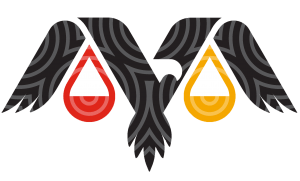MEDIA RELEASE 19 February 2022
Victorian Aboriginal Legal Service (VALS)
A new model for responding to public intoxication is due to take affect in November, but there are still many questions about how the reform will be implemented. VALS believes that it is crucial that Aboriginal services are properly funded to play an important role in the new model. We also support the position of the Day family that police should not be involved in a health response.
Today marks one year since the Victorian Parliament passed legislation to decriminalise public intoxication. The reform had been a recommendation of the Royal Commission into Aboriginal Deaths in Custody (RCIADIC) in 1991. The 30 year wait for this reform saw many Aboriginal people targeted by police. Tragically, it took the death of Aunty Tanya Day and the staunch advocacy of her family to force the Parliament into action.
Aunty Tanya Day was a much-loved mother, grandmother, sister and proud Yorta Yorta woman. Ms Day was put in a police cell for being drunk in a public space. Without adequate supervision or care, she died in the cell, alone, after falling and hitting her head. Aunty Tanya Day was also the niece of Uncle Harrison Day, who died in custody in June 1982. His death was investigated by RCIADIC and the report of the inquiry into his death recommended the decriminalisation of public drunkenness.
Aunty Tanya Day’s family have been working for justice ever since. Despite their grief, they postponed their healing to ensure that such a tragedy never happened again. We owe it to them to ensure the implementation of the decriminalisation of public intoxication does exactly that.
VALS believes that it is crucial that a proper public health model is created to implement this reform. That includes funding for Aboriginal organisations to ensure culturally safe services are available for our people. We are firmly of the belief that police should not be involved in this model.
As a result of systemic racism in generalist health services, our people are rightly hesitant about using mainstream services, even when they are in crisis. Having tailored services, delivered by us for our people will be crucial. Aboriginal health services and Aboriginal Community Controlled Organisations have played a crucial role in supporting our people during the pandemic. These organisations are more than capable and must be properly included in the new model.
If police are involved in the new model, their role must be strictly limited to that of last response. No person should end up in a police cell because they were intoxicated in public. It is vital that police are not allowed to unjustifiably charge people with offences if they come into contact with police solely because they are intoxicated.
In December, the Andrews Government announced that it would trial the public health response for public drunkenness in the City of Yarra, Shepparton, Dandenong and Castlemaine. The announcement came over a year since the Final Report of the Expert Reference Group on Decriminalising Public Drunkenness, which recommended that the trials take place. The Government is still yet to respond in detail to the 86 recommendations from the Expert Reference Group.
Until the legislation comes into effect in November 2022, Aboriginal people continue to be locked up on a daily basis for the offence of public drunkenness. These laws have already done far too much harm. It is imperative that the Government remains committed to this reform and listens to the Day family and Aboriginal and Torres Strait Islander communities about how best to implement the new model.
Quotes Attributable to Nerita Waight, CEO, Victorian Aboriginal Legal Service
“We must make sure that the decriminalisation of public intoxication becomes a reality on the ground. For all the hard work the Day family did after the tragic loss of their mother, we have to get this right.”
“Aboriginal organisations need to be properly funded so that they can provide culturally safe support services for our people.”
“If the police are allowed a role at all, it must be strictly limited to being responders of last resort. For this reform to work, police cannot be allowed to put people in cells for being intoxicated. They also cannot be allowed to unreasonably charge people after if they come into contact with police solely because they are intoxicated.”
“We’re about 250 days away from this important reform being enacted and there’s still a huge amount of work to do to ensure the new public health model is ready.”

